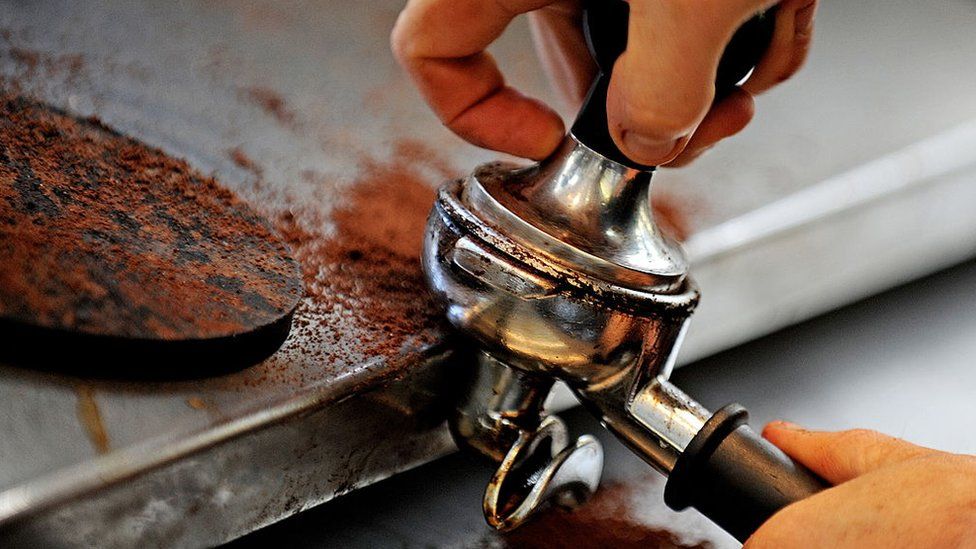Why baristas are about to earn less in Australia
- Published

On Thursday, Australian officials made a decision that prompted an immediate backlash around the country.
The nation's workplace tribunal, the Fair Work Commission, slashed a pay benefit for workers in the hospitality, retail, fast food and pharmacy industries.
Known as penalty rates, it afforded employees higher wages - as much as 200% in some cases - on Sundays and public holidays.
The decision triggered anger from unions, who claimed it would cost some workers up to A$6,000 (£3,700; $4,600) a year, and passionate criticism on social media.
Brisbane bar worker Selina Young is among those affected, estimating she will now earn A$50 less on Sundays. She says she relies on penalty rates to boost her Sunday pay from A$19.90 per hour to just under A$30.
"I don't lead a luxurious lifestyle," Ms Young told the BBC. "I'm at a bit of a loss for what to do."
So what is changing?
In Australia, penalty rates in fact apply to working weekends, public holidays, overtime and late-night or early morning shifts.
But this week's changes affect only Sunday and public holiday pay, and vary across industries. Employees will still earn more than on weekdays.
The Australian Council of Trade Unions said the take-home pay of nearly one million workers would be cut by up to A$6,000 a year, but that figure was disputed by some business advocates.
Who wanted the changes?
Employers argued that penalty rates were "excessive" and prevented many businesses from opening on Sundays because they could not afford to pay wages.
They claimed cutting penalty rates, which have existed since the early 20th Century, would give employees more working hours and better satisfy customers.
Australia's Productivity Commission agreed, describing Sunday rates rates in shops, restaurants and cafes as "anachronistic" and recommended changes.
Who made the decision?
The Fair Work Commission (FWC), an independent body set up in 2009 to be a workplace relations "umpire". Among its several workplace-related responsibilities, the FWC reviews penalty rates every four years.
In making its decision, the commission said Sunday and public holiday penalty rates were no longer a "fair and relevant" safety net for workers.
FWC president Iain Ross said the purpose of penalty rates should not be to deter businesses, arguing it increases employment.
But he did acknowledge the changes would hurt some people. "Many of these employees earn just enough to cover weekly living expenses," Mr Ross said.
Australia's conservative government did not oppose the changes, but Opposition Leader Bill Shorten - a one-time union leader - said they were "a kick in the guts".
How does Australia's minimum wage compare?
Australia has one of the highest minimum wages in the world, A$17.70 (£10.90; $13.60) as of July 2016.
That compares to A$11.70 (£7.20; $8.95) in the UK and A$9.40 (£5.80; $7.25 ) in the US.
However, Australian workers aged under 21 can make less than half the minimum wage, based on a sliding scale that increases as people get older.
In a further complication, wages are growing at their slowest pace on record - less than half compared with 10 years ago, according to Australian Bureau of Statistics data.
- Published18 October 2016
- Published20 September 2016
- Published1 June 2016